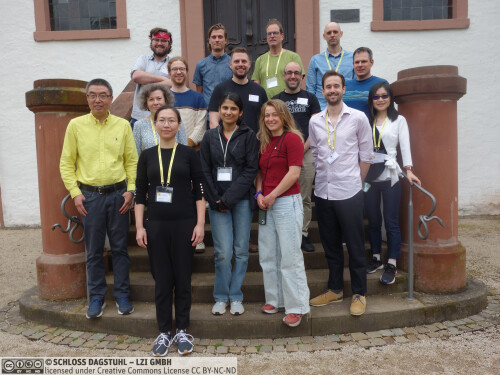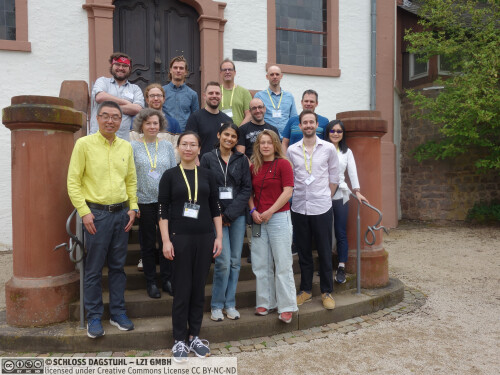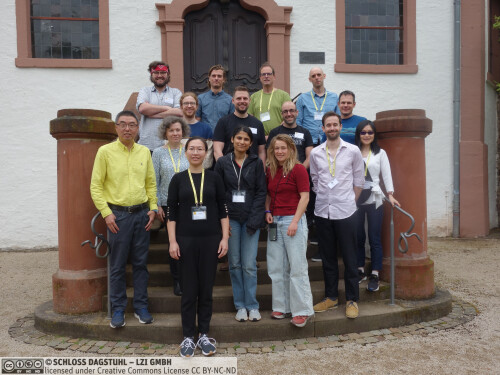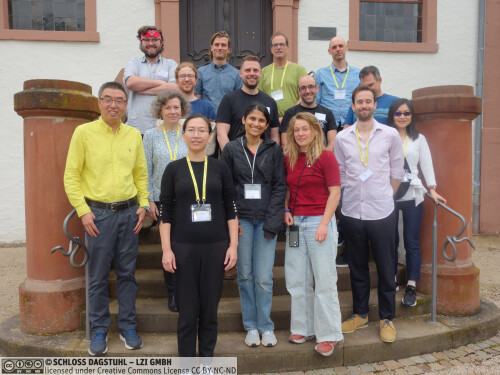Dagstuhl-Seminar 24202
Causal Inference for Spatial Data Analytics
( 12. May – 17. May, 2024 )
Permalink
Organisatoren
- Fernando Perez Cruz (ETH Zürich, CH)
- Jakob Runge (DLR - Jena, DE & TU Berlin, DE)
- Martin Tomko (University of Melbourne - Carlton, AU)
- Yanan Xin (ETH Zürich, CH)
Kontakt
- Marsha Kleinbauer (für wissenschaftliche Fragen)
- Jutka Gasiorowski (für administrative Fragen)
Gemeinsame Dokumente
- Dagstuhl Materials Page (Use personal credentials as created in DOOR to log in)
The ability to identify causal relationships in spatial data is increasingly important for designing effective policy interventions in environmental science, epidemiology, urban planning, and traffic management. Current spatial data analytic methods rely mainly on descriptive and predictive methods that lack explicit causal models. Spatial causal inference offers a promising solution to address this challenge by extending causal inference methodologies to spatial domains. However, this translation is challenging due to spatial effects that violate fundamental assumptions of causal inference. Spatial causal inference is therefore still in its infancy, and there is a pressing need to accelerate its theoretical development and support its adoption with a well-grounded methodological toolset. This requires an interdisciplinary exchange of ideas, as researchers in different fields, such as environmental sciences, spatial statistics, theoretical GIScience, and machine learning, are making significant but disparate efforts in the foundations of spatial causal inference.
To address these challenges, we convene the first Dagstuhl Seminar on Causal Inference for Spatial Data Analytics. The seminar brings together researchers from the machine learning, statistics, and spatial data science communities to exchange ideas on theory, methodology, application, and industrial practices related to spatial causal inference. This seminar should help to identify the research gaps and opportunities, and foster collaborations between academia and industry. We plan to establish a roadmap enabling the sound design of experimental and observational spatial causal analysis workflows. We hope to summarize the theoretical, methodological, and application recommendations in (a series of) foundational materials (papers, monographs, or edited volumes), setting the state of the art of the field and acting as an entry gateway to spatial causal inference for researchers across disciplines.
The topics to be discussed in the seminar include:
- Spatial causal inference (theory, general framework, methodology, and applications)
- Spatial causal machine learning (theory, methodology, and applications)
- Methodological concerns in spatial causal inference: dimension reduction, causal discovery from observational data, hidden spatial confounders, invariance of causal features, spatial matching
- Causal relationships - identification vs quantification
- Conceptual challenges in the identification and reasoning about spatial causal relationships
- Case studies of spatial causal inference across academic and industry-centered spatial applications (incl. climate science, mobility analysis, environmental science, spatial econometrics, epidemiology, spatial reasoning)
- Feeding back - how can spatial expertise inform non-spatial causal analysis?
- Research and educational directions to accelerate the development of causal inference for spatial data analytics
 Fernando Perez Cruz, Jakob Runge, Martin Tomko, and Yanan Xin
Fernando Perez Cruz, Jakob Runge, Martin Tomko, and Yanan Xin
Please log in to DOOR to see more details.
- Kevin Credit (Maynooth University, IE)
- Cécile de Bézenac (Alan Turing Institute - London, GB & University of Leeds, GB)
- Simon Dirmeier (Swiss Data Science Center - Zürich, CH)
- Andreas Gerhardus (DLR - Jena, DE)
- Totte Harinen (Airbnb - San Francisco, US)
- Dominik Janzing (Amazon Web Services - Tübingen, DE)
- Urmi Ninad (TU Berlin, DE)
- Markus Reichstein (MPI für Biogeochemie - Jena, DE) [dblp]
- Katerina Schindlerova (Universität Wien, AT)
- Martin Tomko (University of Melbourne - Carlton, AU)
- Jonas Wahl (TU Berlin, DE)
- Jianwu Wang (University of Maryland - Baltimore County, US)
- Levi John Wolf (University of Bristol, GB)
- Yanan Xin (ETH Zürich, CH)
- Shu Yang (North Carolina State University - Raleigh, US)
- Andrew Zammit Mangion (University of Wollongong, AU)
Klassifikation
- Artificial Intelligence
- Machine Learning
Schlagworte
- spatial causal inference
- spatial data analytics
- causal machine learning





 Creative Commons BY 4.0
Creative Commons BY 4.0
